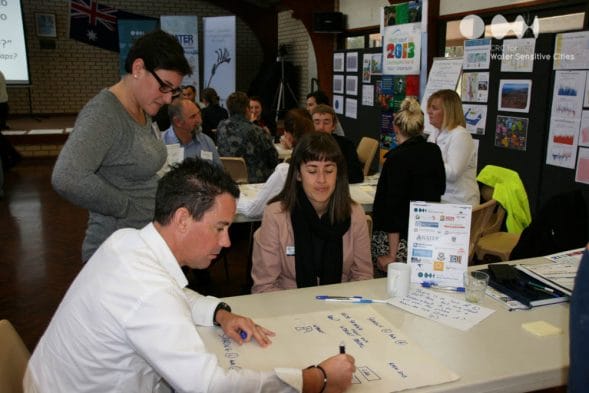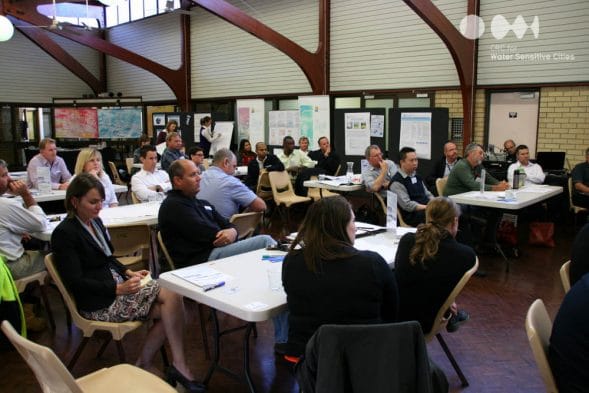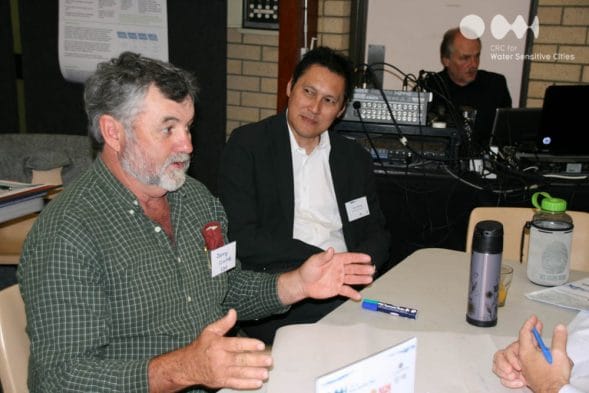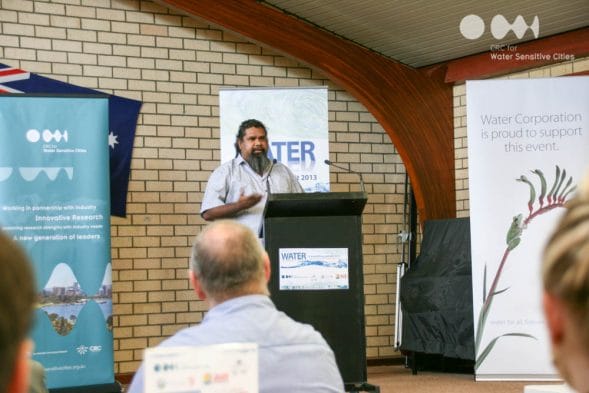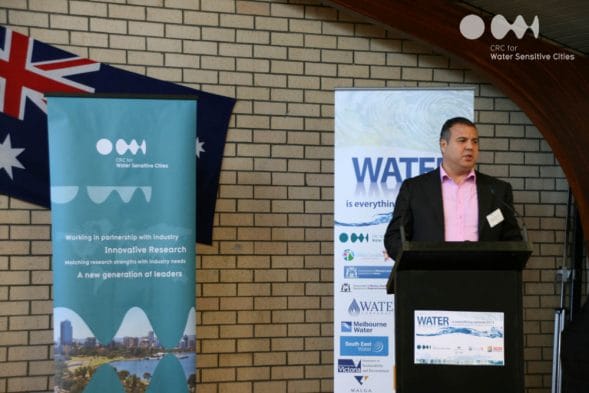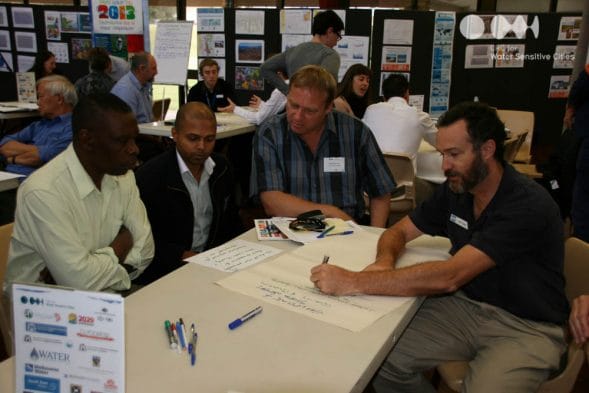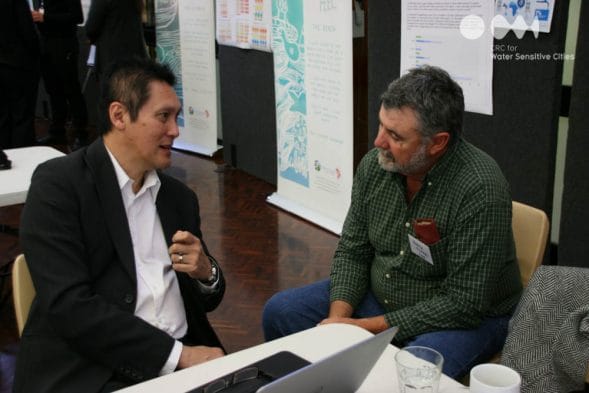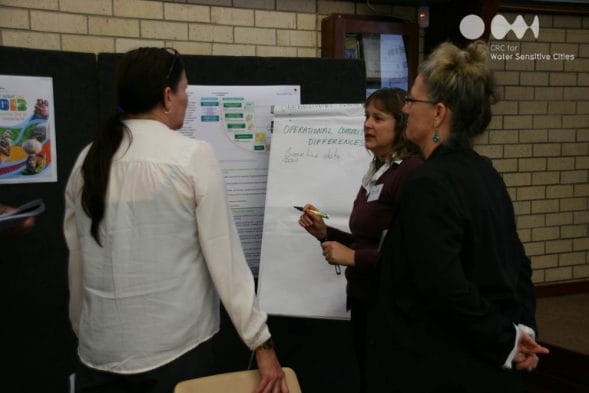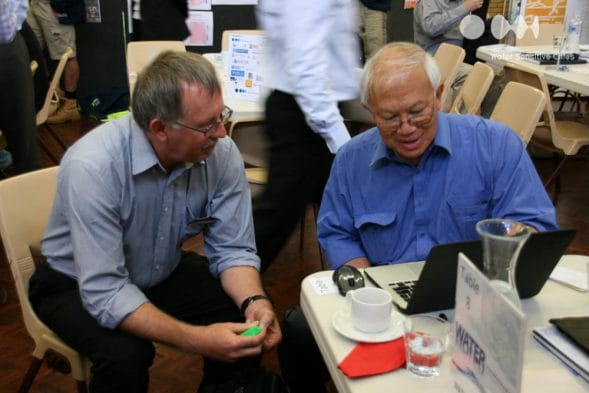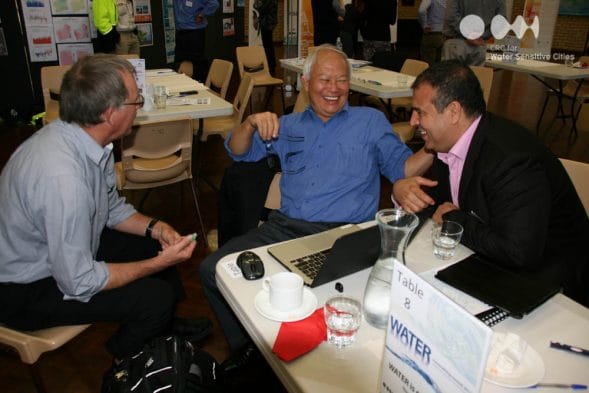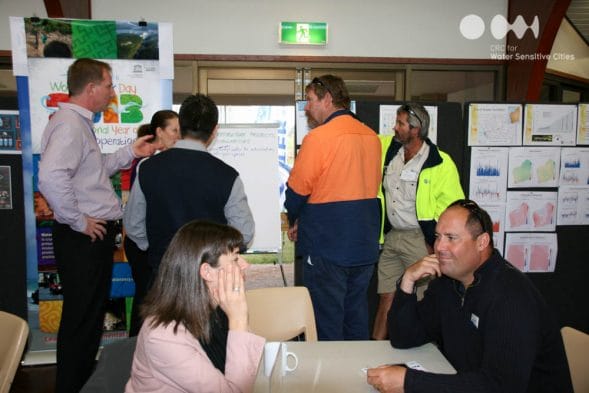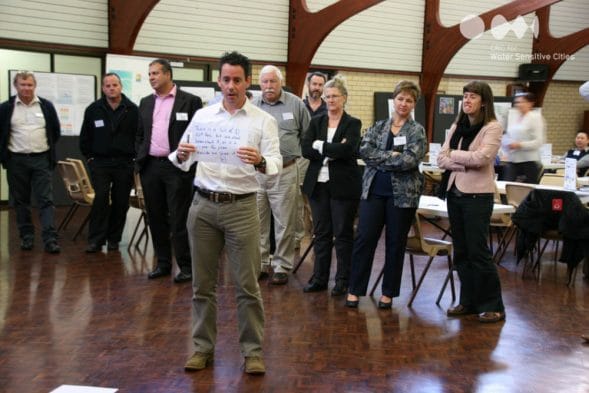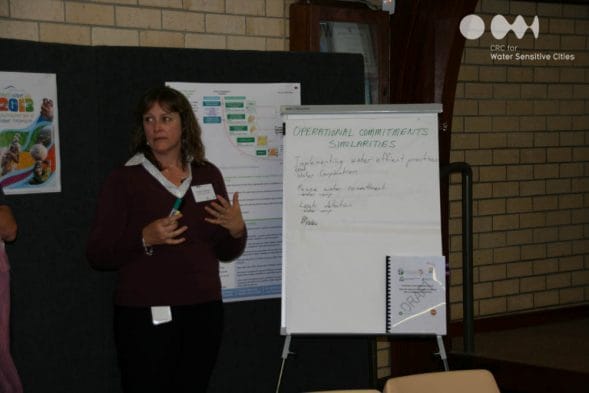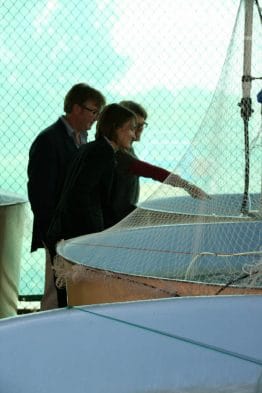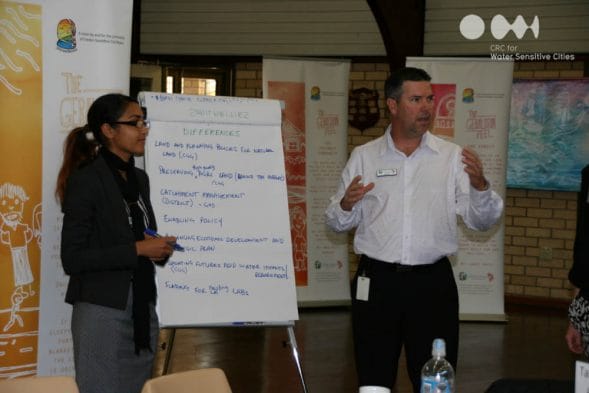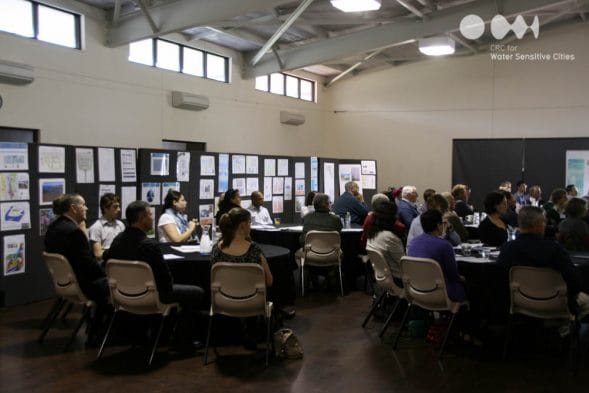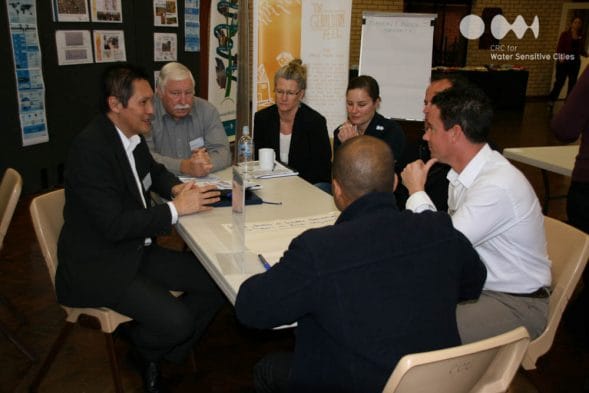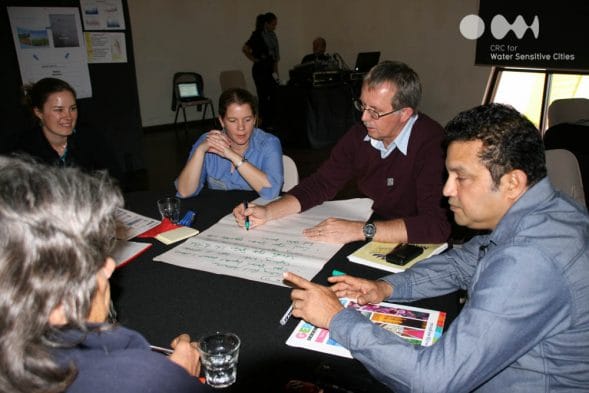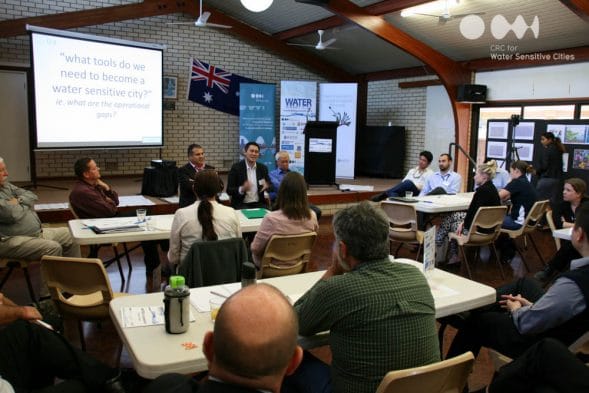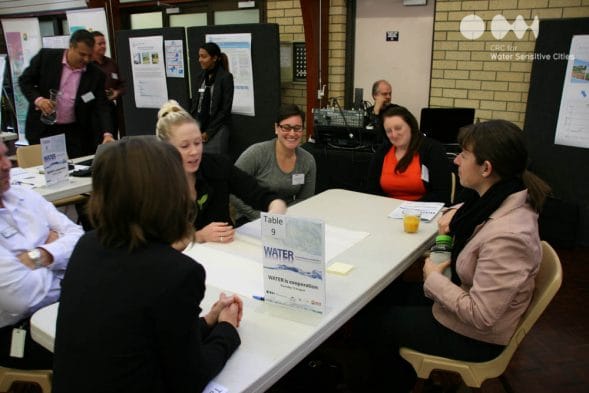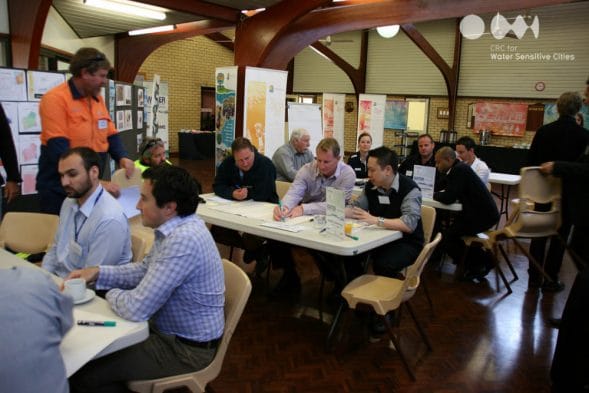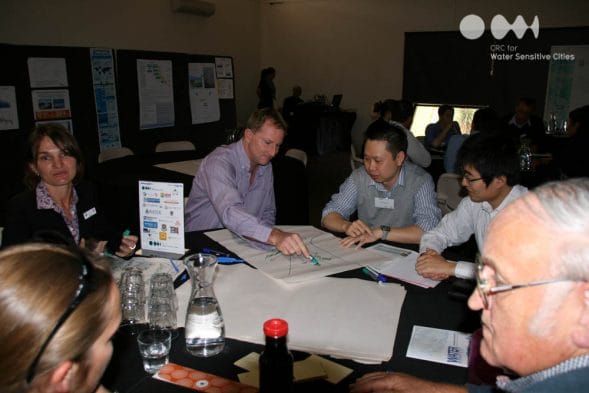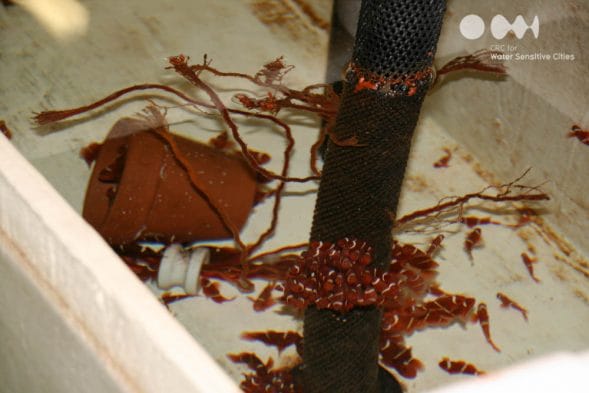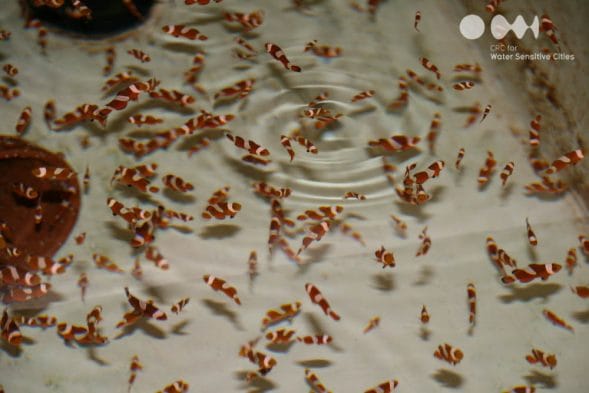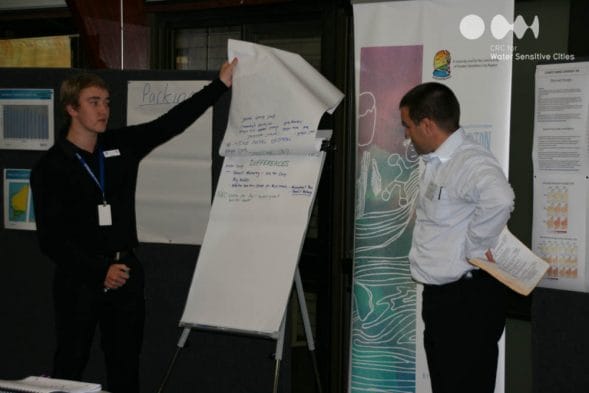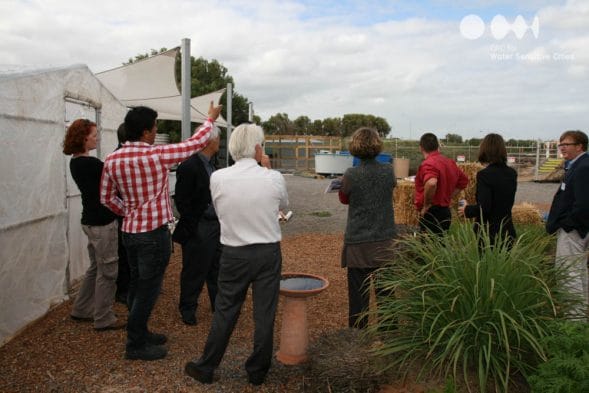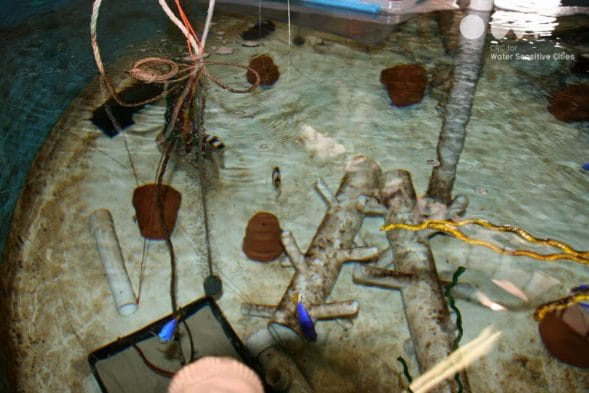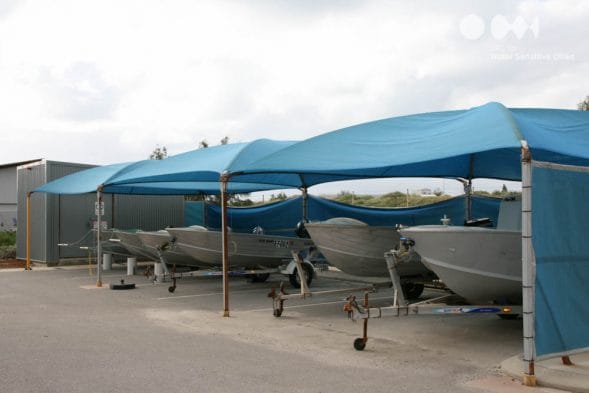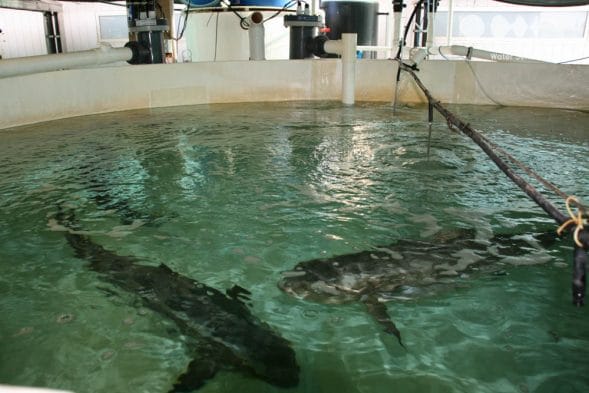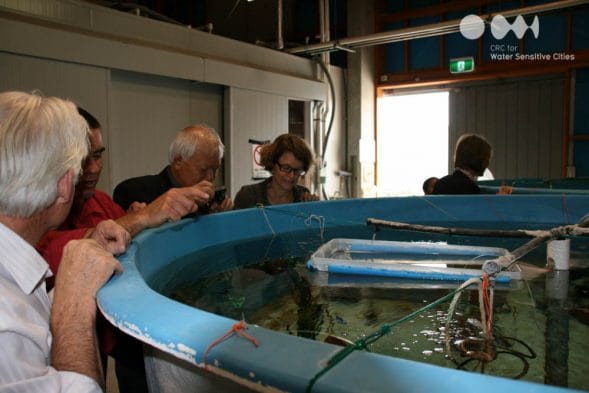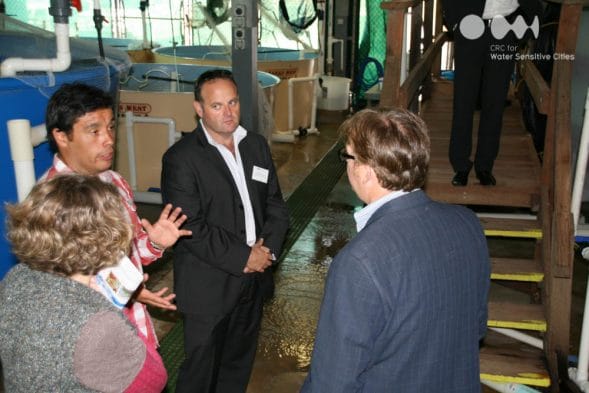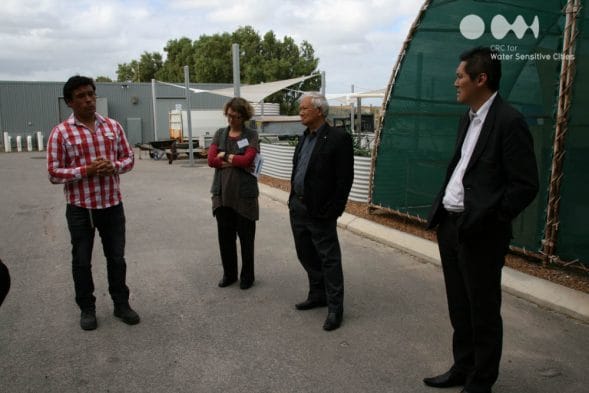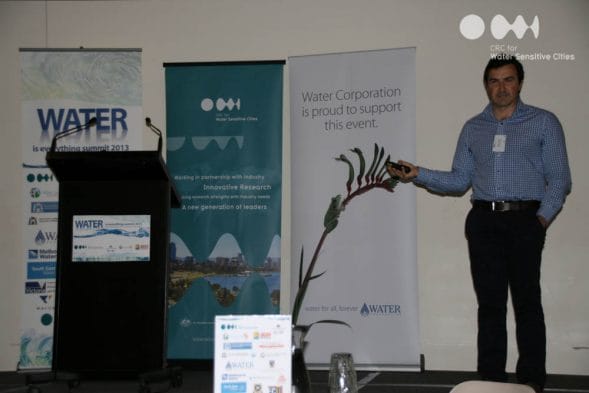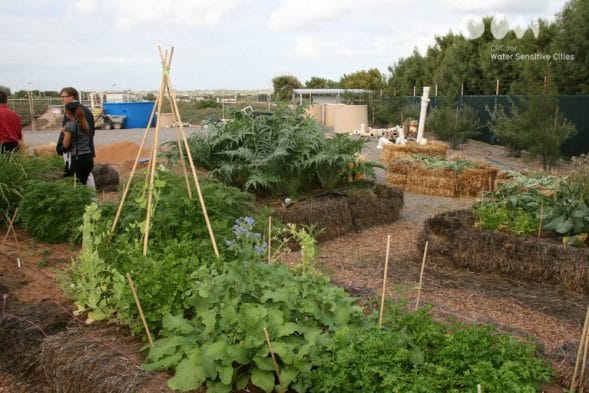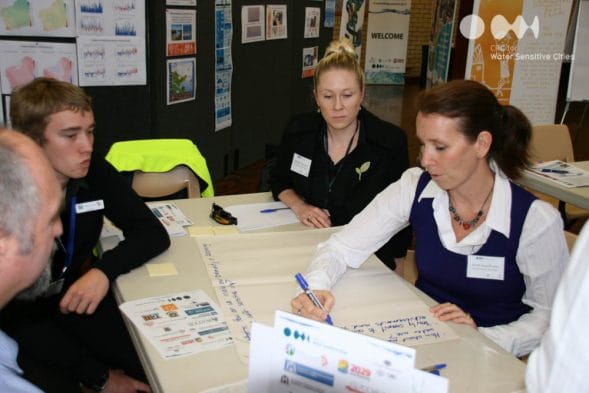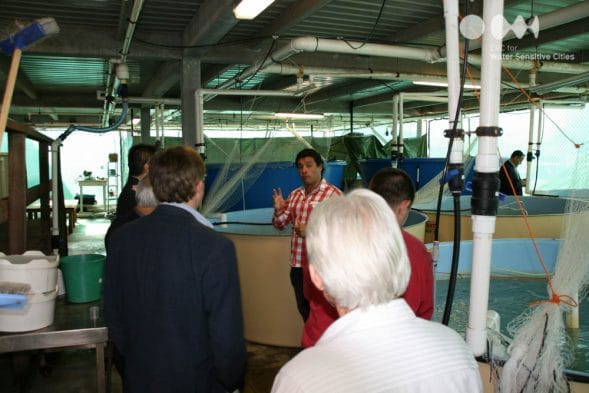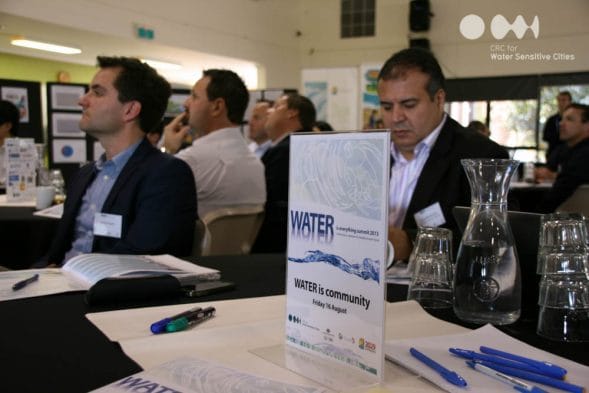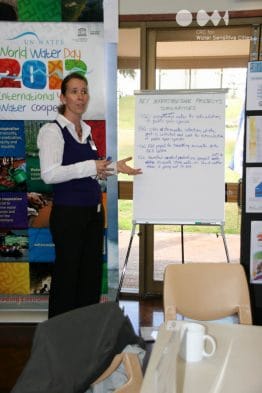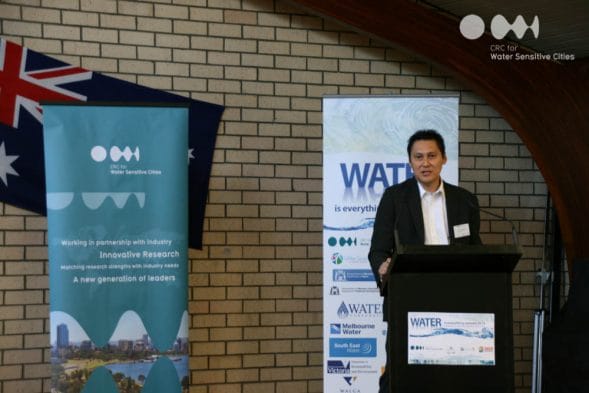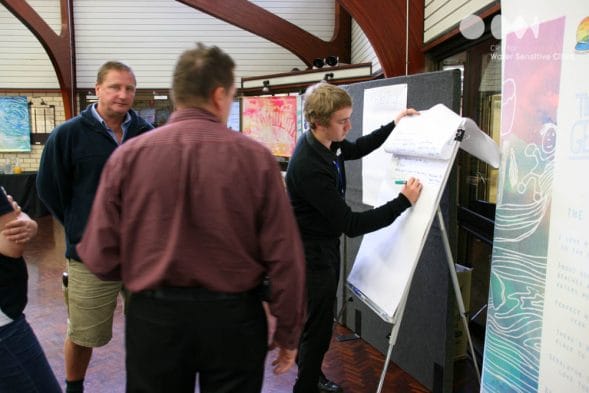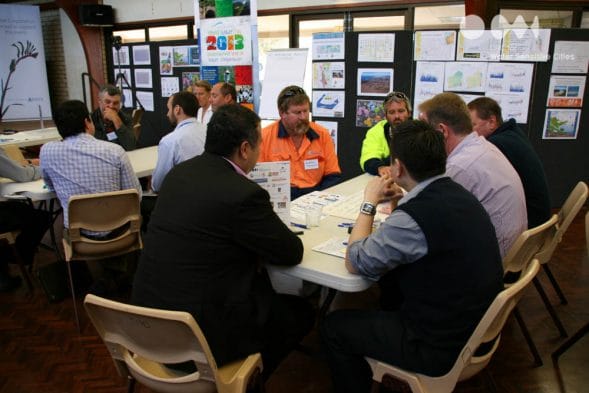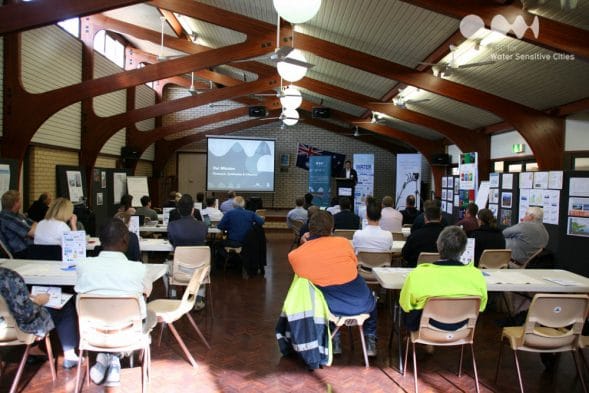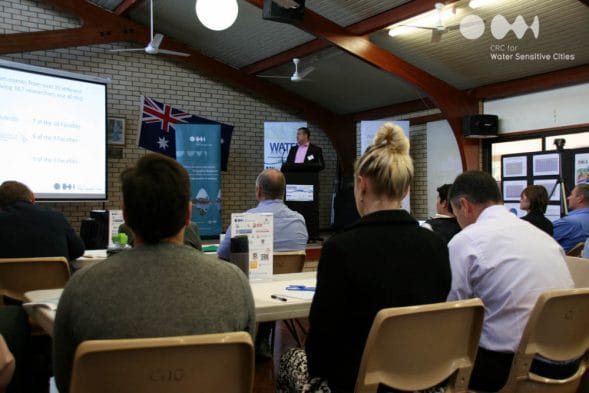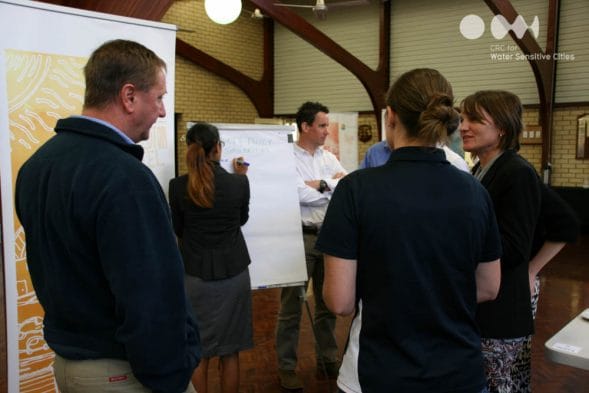A view from the Summit
The CRC for Water Sensitive Cities (CRCWSC) and the City of Greater Geraldton recently collaborated to facilitate a community forum on innovative water management. The two-day Water is Everything Summit, held in August 2013, attracted around two hundred participants from the region.
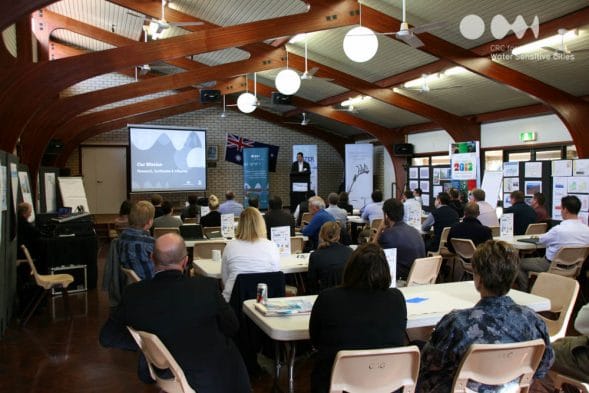 Stretching from Geraldton on the coast to the Gibson Desert deep in the state’s interior, Western Australia’s vast Mid West region faces serious challenges from scarcity of water. Greater Geraldton has committed to a community charter that aims to balance the five pillars of sustainability (environment, social, cultural, economic, governance) by 2029. Geraldton is in a fortunate position. It has formed strong collaborative partnerships with the Water Corporation and the Department of Water for an integrated approach to water planning and management in the region. The city uses expertise from the CRCWSC to help it become a leader in the use of innovative water technologies. One of the recommendations of its Water Planning and Management Strategy 2011 is to protect and conserve water resources for future generations.
Stretching from Geraldton on the coast to the Gibson Desert deep in the state’s interior, Western Australia’s vast Mid West region faces serious challenges from scarcity of water. Greater Geraldton has committed to a community charter that aims to balance the five pillars of sustainability (environment, social, cultural, economic, governance) by 2029. Geraldton is in a fortunate position. It has formed strong collaborative partnerships with the Water Corporation and the Department of Water for an integrated approach to water planning and management in the region. The city uses expertise from the CRCWSC to help it become a leader in the use of innovative water technologies. One of the recommendations of its Water Planning and Management Strategy 2011 is to protect and conserve water resources for future generations.
According to Phil Melling, Director of Sustainable Communities for Greater Geraldton, sustainable water management is an established community aspiration:
“The issue of water conservation has been central to our planning for some time, and Council has a proud record of working closely with the community when it comes to environmental issues.”
The two broad groups attending the Summit – water management professionals and members of the general community – were joined by a delegation of five experts from the CRCWSC, led by CEO Professor Tony Wong. Together with Program Leaders Professor Darryl Low Choy and Jamie Ewert, and the Regional Executive Director for the Western Region, Professor Anas Ghadouani, the CRCWSC gave a series of background presentations on the current state of knowledge of water sensitive urban design, water sensitive city planning, peri-urban land use and environmental planning, and industry and community capacity building. These presentations provided important material for subsequent community discussions on how Geraldton could incorporate the latest learnings into its planning strategy.
Engaging partners in reducing “water crime”
Day one of the Summit brought together stakeholders and partner organisations involved in water management. Participants included Durack College (a former TAFE college with a high profile in sustainability education and leadership in the region), the Department of Water (responsible for water resources management), and the Water Corporation (concerned with providing water to the community) – along with the City of Greater Geraldton.
Initial discussion explored the practical implications of greater water sensitivity and what this would look like for the region. Some of the emerging themes: “fit for purpose” water source options to minimise wastage of potable water; better utilisation of rainwater runoff; recognising and protecting the value and services that natural systems provide; changing community behaviour to increase efficiency in water use; and integration of stormwater and wastewater management into planning and infrastructure.
Geraldton’s wish list: approaches and enabling factors
The second session of the day focused on Greater Geraldton’s draft Water Planning and Management Strategy, developed in 2010. Partners were asked to compare their own approaches with the Strategy’s proposals concerning community initiatives, operational commitments, planning, and policy, as well as key infrastructure projects to identify synergies and differences in reaching water management objectives. The discussion then moved on to identify knowledge and tools that would enable Geraldton to become a water sensitive city over the coming decades. Participants’ expertise produced a comprehensive list that ranged from practical tools – such as a groundwater atlas, a census of domestic bores to a local governance model (not determined by the state government in Perth), and a set of appropriate policies and processes for improved water management.
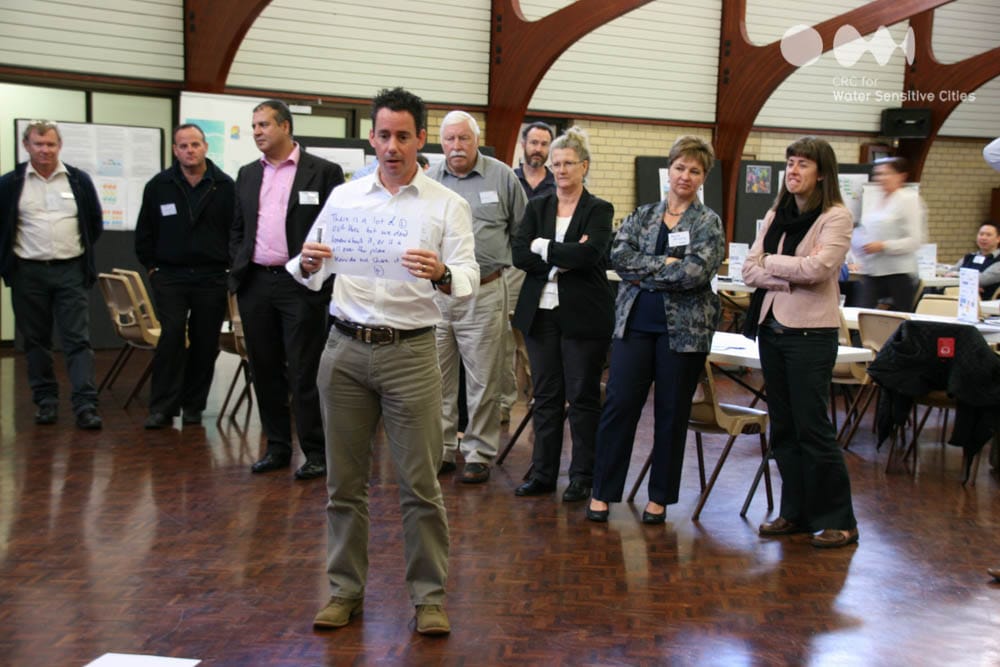
The final session dealt with a number of topics raised by the water-management partners themselves; it reflected their understanding of the complexities of sound water management in a broader context of sustainability and social expectations. The topics led to animated brainstorming on several issues: the importance of linkages with agencies involved in biofuels and wastewater; eliciting firm community commitment to water sensitive practices; behaviour changes required of residential water users; the current total availability of fresh water resources; and the region’s current benchmark position with respect to water sensitivity.
A community-led vision
Day two of the Summit focused on the water users of Greater Geraldton, whose active support for water-saving initiatives would be critical to their success. Community members were given the opportunity first to raise ideas about achieving greater water sensitivity and then to create their own vision for Geraldton’s water sensitive future. Themes emerging from the workshops clearly reflected the community’s desire to be proactive about water sensitivity and to create a culture that fully embraced this aim. “Championing sustainable water solutions”, “taking pride in valuing water”, “embracing a sustainable water culture”, “creating a waterwise, green, sustainable city through leadership, awareness, and education”: these were among the expressions of an existing commitment to water sustainability. They were consolidated to create a community-led vision, which may be summarised like this:
Championing sustainable water solutions to become an ecologically proud community, one that values our precious water while maintaining a liveable and healthy environment for our city and its region: a “waterwise coast”.
Many attending the community workshop had previously participated in discussions toward the draft Water Planning and Management Strategy (and therefore reflected an already interested sector). But according to Bronte Grant, Environment Sustainability Officer for the City of Greater Geraldton, the workshop saw an impressive turnout from across the broader community and by no means preached solely to the converted:
“It was great to see that people not previously involved with water issues also came along and contributed, even school students. People obviously enjoyed the process and left with a real sense of achievement.”
One particularly unifying aspect of the Summit was the development of a common “water language” that will facilitate communication about water sensitivity in the future, as ideas and recommendations are implemented.
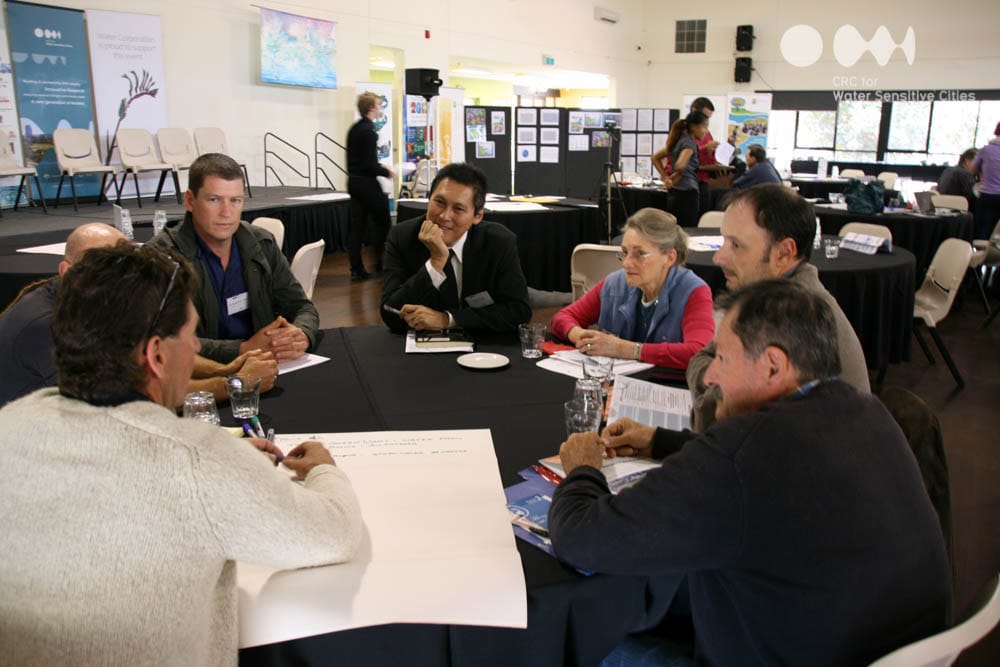
CRCing the future
For the Greater Geraldton Council, the Water is Everything Summit continued a journey that began over three years ago and might take decades to complete. Phil Melling and Bronte Grant recognise the important contribution that the CRCWSC has made to propelling Geraldton forward as a water sensitive city. In Bronte’s words:
“The resources and time commitment that the CRC provided through this Summit were commendable. Its ability to network and come up with demonstration projects is unique in the sector.”
The CRCWSC’s contribution has highlighted its crucial role as a bridging organisation in Geraldton’s journey toward greater water sensitivity. It has fostered strong science-policy partnerships through linking key stakeholders in the region, including the Department of Water, the Water Corporation, state and local governments, the private sector, and the community. In this partnership, the CRCWSC will continue to facilitate innovation in transforming the City of Greater Geraldton into a water sensitive city through its research, the synthesis of research insights, and ultimately the co-development (with government and the community) of corresponding policies and technology that are appropriate for the Mid West region of Western Australia.
Nicola Markus for the Mind Your Way team
